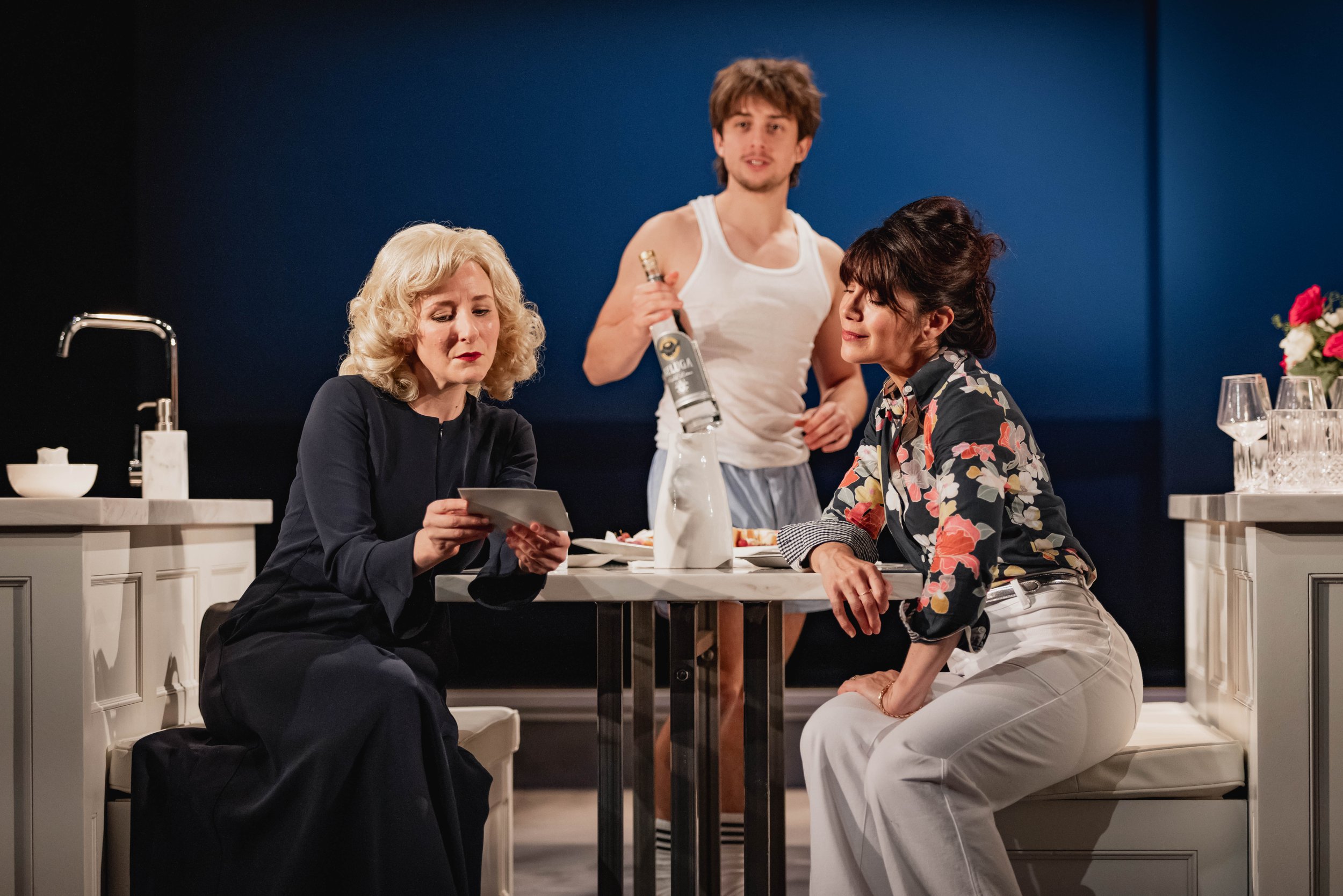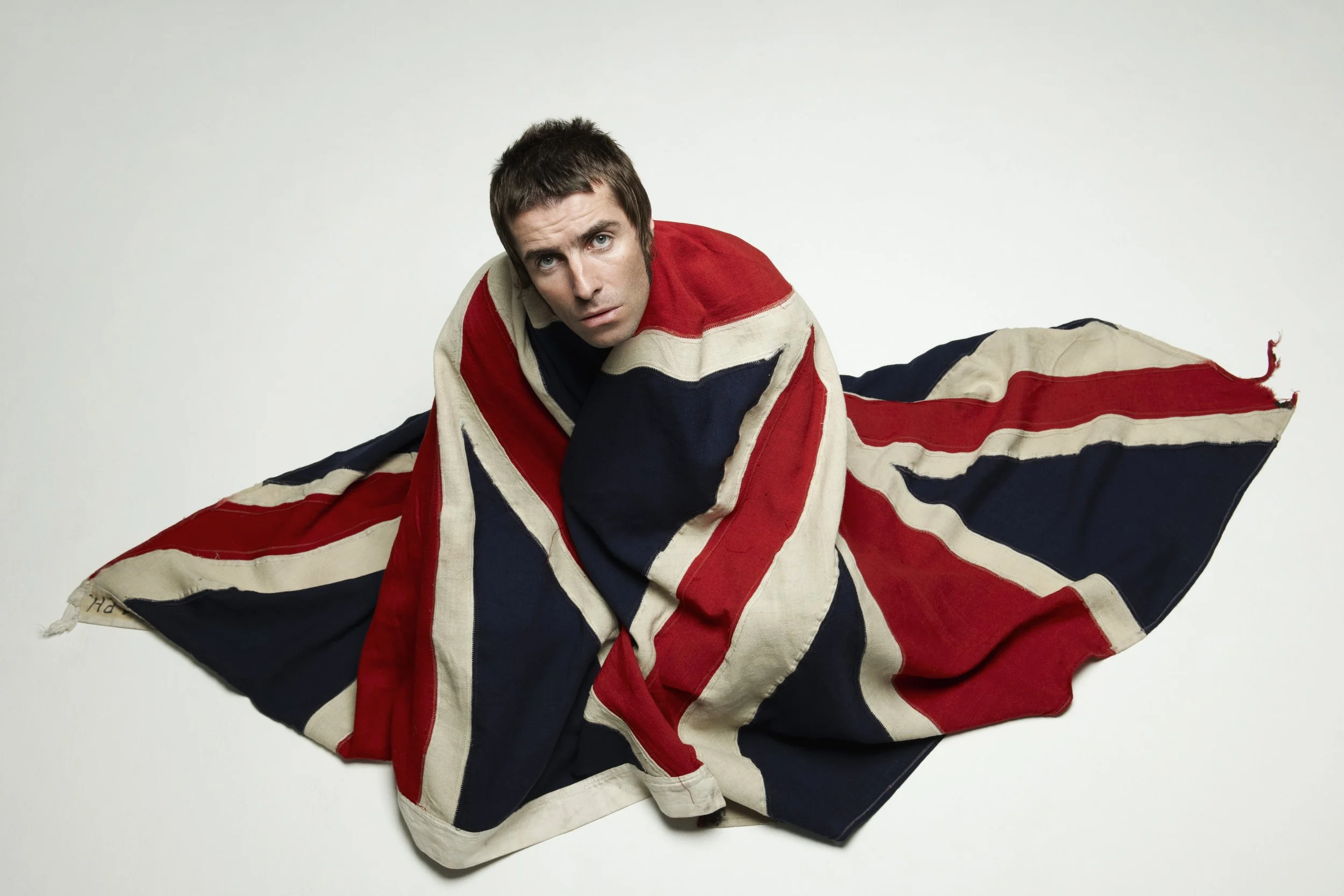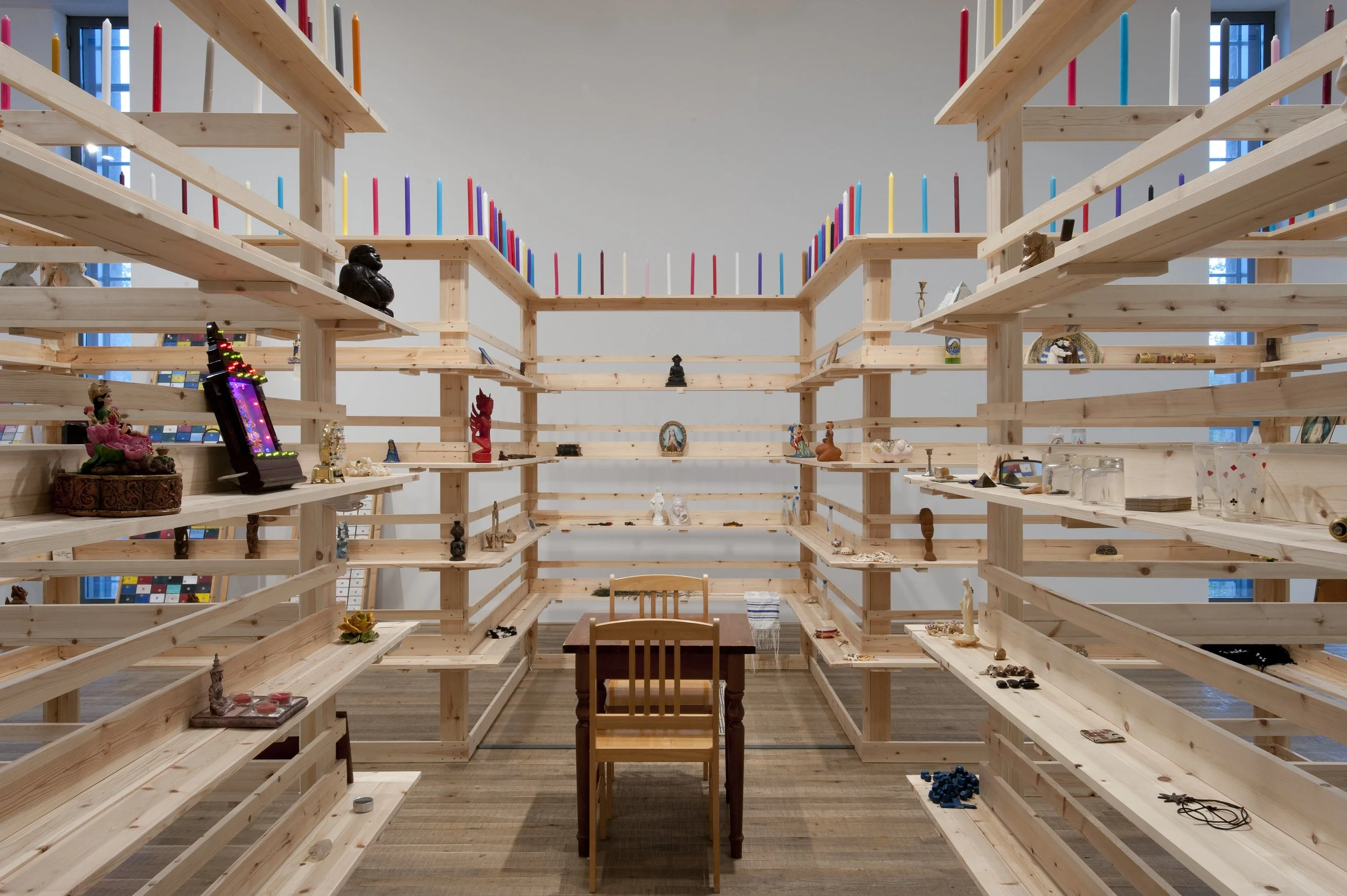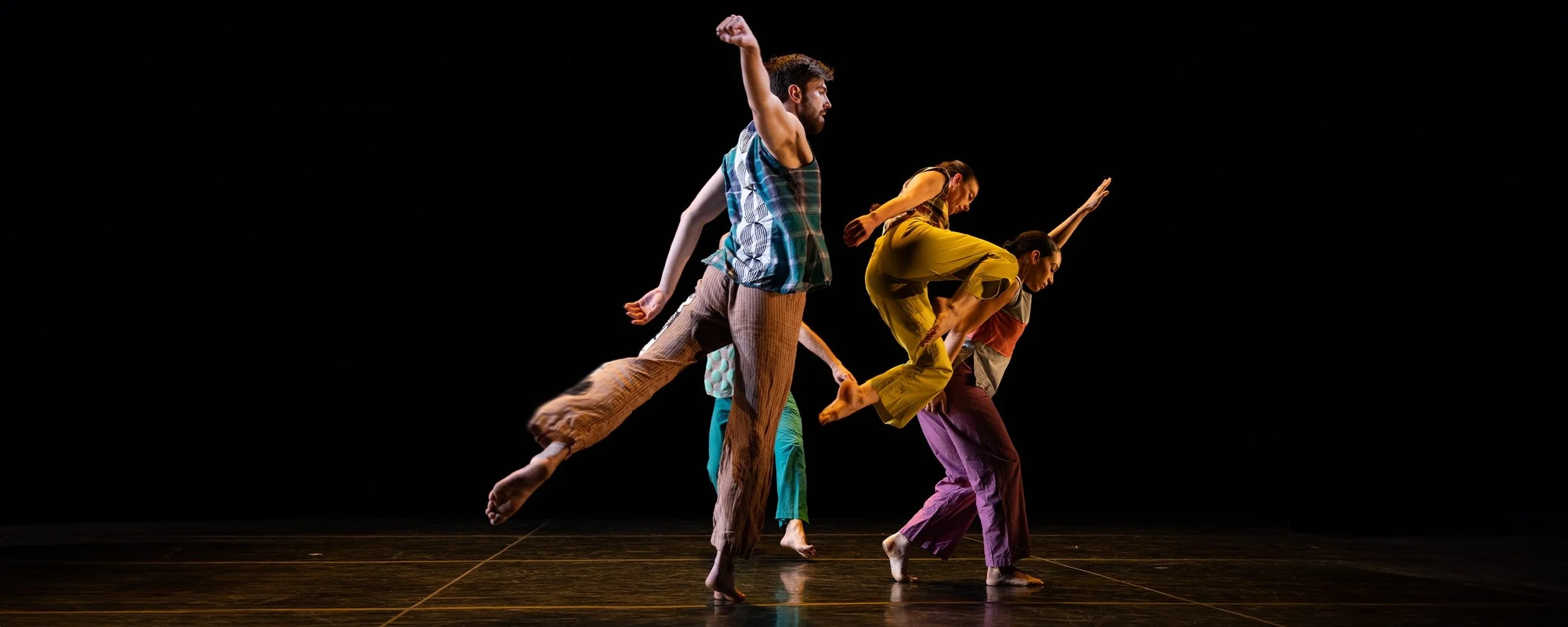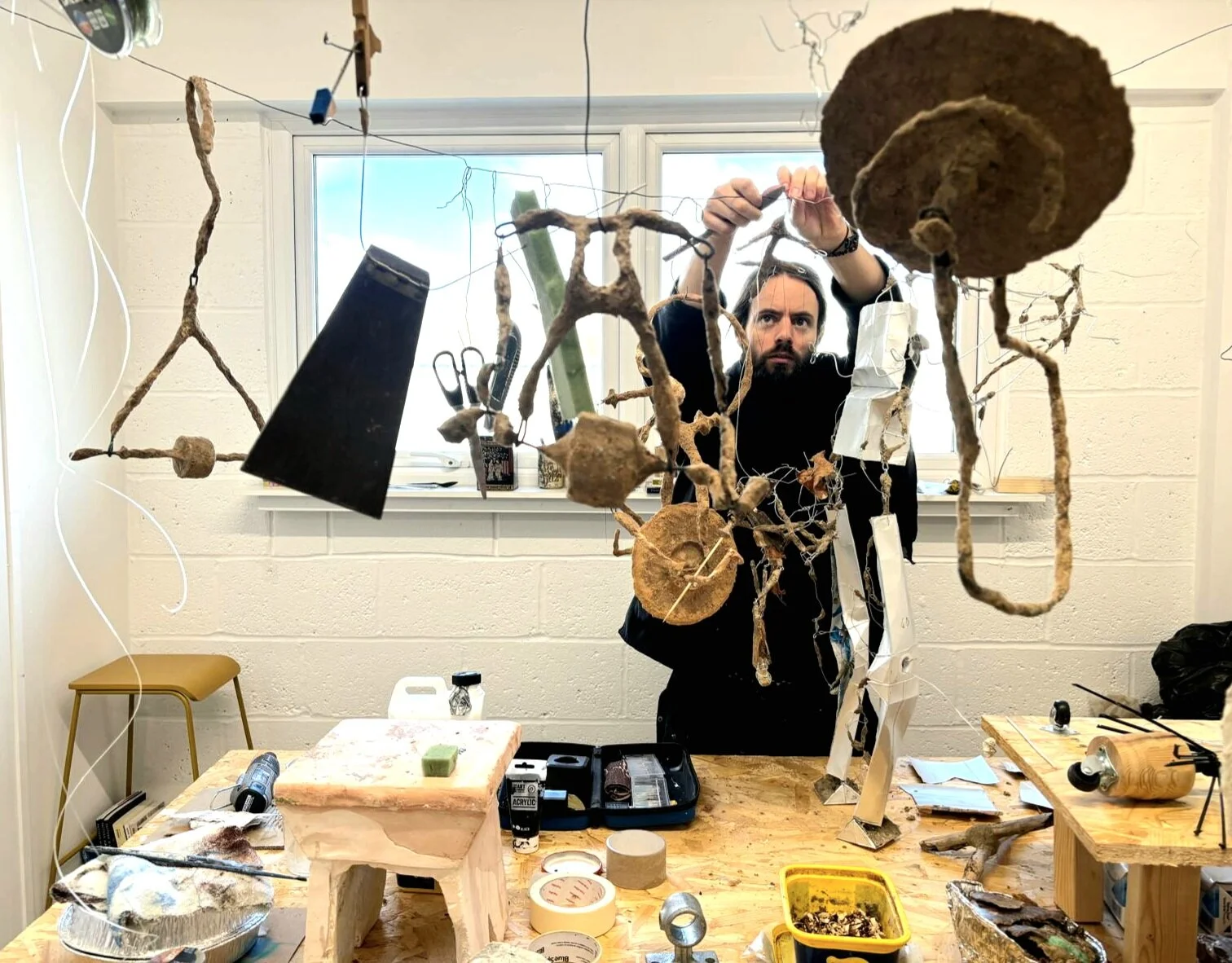What We Talk About When We Talk About Anne Frank review
Not a spoiler, but it’s important to note this Off-West End production is not about Anne Frank. It is about so much more and all will be revealed by the end of the play. The stage production originates from a series of short stories of the same name, written by Nathan Englander, an American short story writer and a Pulitzer Prize finalist.
Directed by Patrick Marber, who won a Tony Award in 2023 for Leopoldstadt, an exploration of Viennese Jewish history, the play features familiar TV faces and delivers an entertaining yet serious comedy that tackles weighty issues.
FRONT_Caroline Catz and Dorothea Myer-Bennett_BACK_Gabriel Howell. What We Talk About When We Talk About Anne Frank. Image credit Mark Senior.
Englander felt it was paramount for the play to remain current and from the time of planning its staging in London to now, the events of October 7 and Israel’s ensuing response could not be ignored. Although the original story addressed the subject of Palestine and Israel as a small part of the whole, he was compelled to rewrite those few pages of the original script to encompass the conversations and existential questions being asked in Jewish communities amidst so much violence.
The stage is set in the Florida kitchen of Phil and Debbie, a wealthy secular Jewish couple who are waiting for the arrival of Laura, Debbie’s estranged best friend from childhood, and her husband Mark, after reconnecting through Facebook.They had been best friends until they both got married and drifted apart. Debbie married Phil and as a result became secular whereas Laura met Mark and is now an ultra-Orthodox Jew living in Jerusalem and are now named Shoshana and Yerucham. Debbie pleads with Phil to be on his best behaviour. She would like him to change clothes and put away his chicken legs (he’s wearing shorts) and warns him “Don’t mention the war” and to not touch Shoshana when greeting her.
Thrown into the mix is their only son Trevor (Gabriel Howell), Pastafarian, college dropout on “a gap year, find yourself year”. He doubles as son and emcee of sorts, introducing the six distinct scenes with tongue in cheek. Trevor, from a different generation brings with him alternative views and concerns and reveals his extreme climate anxiety. He is the generation we all need to hear from more as we mess with their future.
Gabriel Howell. What We Talk About When We Talk About Anne Frank. Image credit Mark Senior.
All the cast performances are formidable. Joshua Malina and Caroline Catz as Phil & Debbie are a convincing couple in their expensive newly renovated kitchen. Catz’s Debbie is a character caught between her present life and a nostalgia for her Orthodox upbringing. Phil sees being secular using one’s brain instead of blindly following religion and having free will when decision making. Both are navigating the tensions between their secular lifestyle and their concern over rising antisemitism in the wake of Israel’s actions
Dorothea Meyer-Bennett and Simon Yadoo as Shoshana and Yerucham are perfect as the opposing couple with a differing chemistry. In a love marriage and bound by the traditions of their religion we come to understand their life in Israel, as they share what it means to live there and would like Debbie and Phil to visit and see for themselves. Yerucham’s is the son of a holocaust survivor and prefers to look to the future in life. Yadoo’s puts in a commanding performance. His wife Shoshana played by Dorothea Meyer Bennett reveals a feisty character. Religion has brought conflict to their marriage - a painful estrangement from daughter Miriam who married out. Phil shows utter disbelief that a man like Yerucham could make his own daughter “dead” and in his own way has managed to make Yerucham very reluctantly rethink. By the play’s end Shoshana finds a way to insist her husband let her resume contact with their daughter.
Likeable characteristics exist in each of them and as a result they eventually win each other.
Joshua Malina. What We Talk About When We Talk About Anne Frank. Image credit Mark Senior.
The play is beautifully directed with the pace between the couples’ conversations making the time fly while they discuss religion, history, marriage, parenting, education, the Holocaust, Palestinians, and preposterously brain storm possible names for ice cream flavours at an imagined Holocaust Disney theme park - where the ice-cream stall would be “The Dairy of Anne Frank” and sell "six million flavours" e.g. Pogram & Raisin. The conversations happen over too much vodka and Trevor’s weed stash and become increasingly and refreshingly unfiltered.
We are currently living in a time where, more often than not there is an inability of people with differing viewpoints to communicate across ideological divide and hear each other out. Nathan Englander’s writing is a triumph in the way the conversations flow and charm. Despite all the confrontation between the two couples – no one leaves, they find a way to keep their discourse going. No one is cancelled, no one storms out. It feels authentic, reflecting the complex nature of real-life relationships in which differing views can lead to conflict, but also, occasionally, to understanding.
The audience, in the confines of the theatre is technically trapped and forced to listen to all sides and begin to believe we can find a way to have these conversations, despite the reality not being quite so easy. A reality where many friendships and families fracture or breakdown over war, religion, politics and elections.
LtoR_Gabriel Howell and Caroline Catz. What We Talk About When We Talk About Anne Frank. Image credit Mark Senior.
Late into the evening fuelled by drink and drugs they play a childhood game of Deborah and Shoshana'. The Anne Frank Game which forms the inspiration for the show’s title in which they determine who would risk their lives to hide them in the event of a second Holocaust. It is a captivating scene which is mostly serious but deftly incorporates the light-hearted and humorous thought process of the characters. The play ends with the couples dancing in the rain high on the trajectory of their evening.
With its strong mix of characters, the thought-provoking conversation and laugh out loud moments make for a memorable and enjoyable evening which will stay with you long after you leave the theatre.
Finally, the Marylebone Theatre, a mere two years old, is quickly establishing itself as a venue to watch. Having already won the Off-West End best production award for The White Factory its upcoming programming including a special fundraiser with Kristin Scott Thomas and A Sherlock Carol for (a festive mystery) promising more exciting work ahead.
Date: 4 October - 23 November 2024. Location: Marylebone Theatre,35 Park Rd, London NW1 6XT. Price: from £22.25. Book now.
Review by Natascha Milsom

